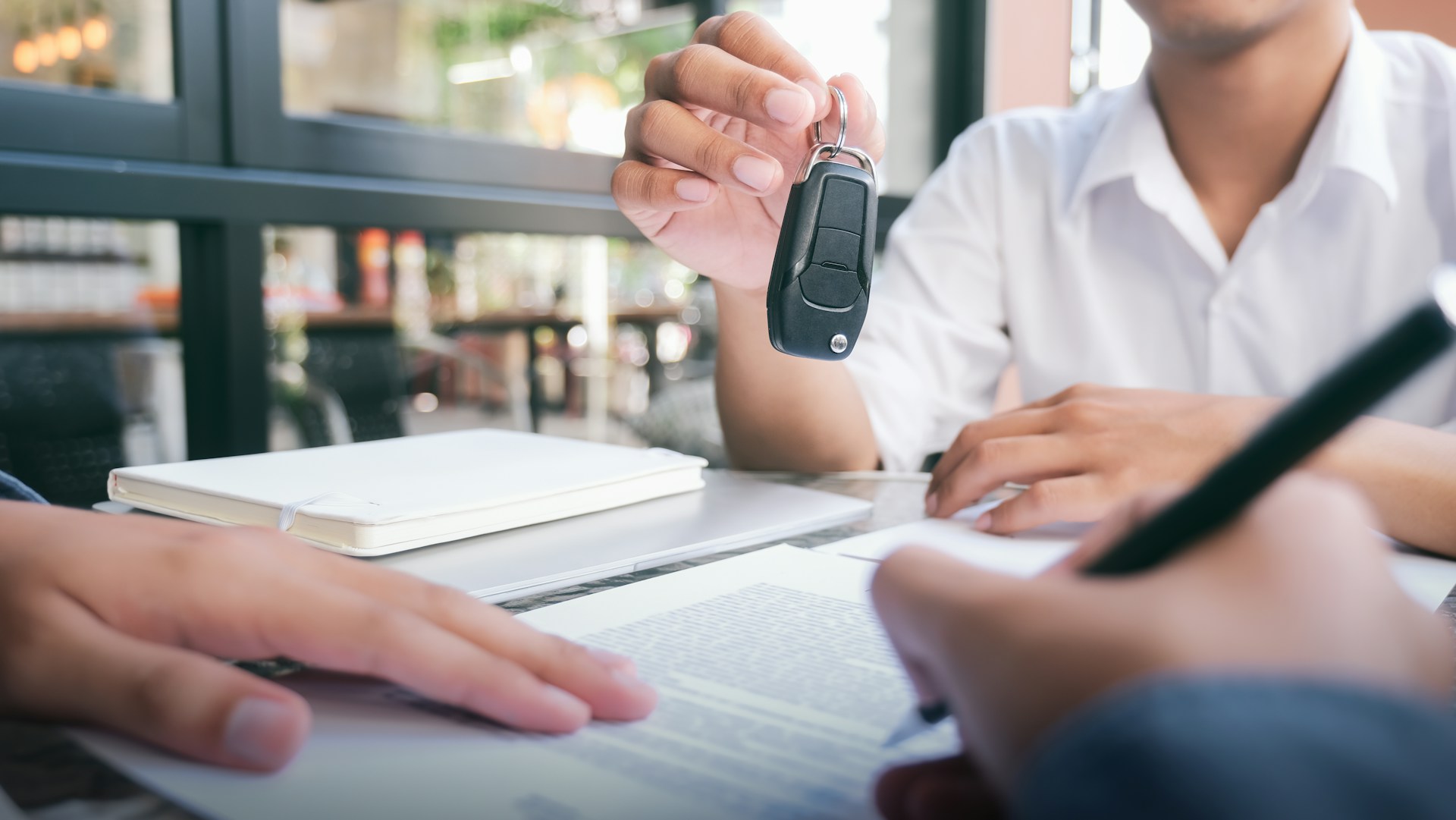
You should be able to sell your car safely and conveniently—and get paid for it. Yet, many payment types are risky, slow, expensive, inconvenient, or all of the above.
Let’s cut through the confusion and find the best way to get paid for your car, securely and quickly.
Cashier’s checks are a fairly secure payment method for two strangers to finish a high-value transaction. They’re not foolproof—skilled forgers have been known to create convincing cashier’s check fakes—but they’re a safe bet if the buyer’s bank confirms the check’s authenticity.
To verify a cashier’s check, meet the buyer at their bank and get confirmation, or call the bank. If you opt for the latter option, use a publicly available phone number from a trusted third party (Google, Yellow Pages). Fraudulent cashier’s checks might contain the phone number of an accomplice who will pretend to verify the check.
If you’d rather skip the inconvenience (and limited bank business hours), read on.
Physical cash has one big advantage: you get paid on the spot. No bounced checks, no waiting for funds to clear. But for high-dollar car sales, cash is a bit risky and awkward. Here’s why:
If you’re selling an old beater for a couple of thousand dollars, cash transactions are fine. But for a $50,000 F-150, you want something as immediate as cash, minus the risk and trouble. DealNow is the best way for a buyer to pay cash for a car.
Peer-to-peer payment apps are great for splitting bills. They’re inadequate for large fund transfers. Here’s why:
Let’s look closer at the shortcomings of payment apps for vehicle transactions.
If the buyer has a verified PayPal account, they can send up to $60,000 in a single transaction. If you’re asking less than $60K for your car, you’re golden—if you don’t mind the fees.
PayPal charges a 2.9% + $0.30 fee for goods and services. For a $60,000 vehicle, that’s almost $1,800. That’s coming out of someone’s pocket, and most buyers won’t want to take the entire hit. Be prepared to split the cost of funds transfer with them.
By the way, buyers can dispute transactions for up to 180 days. If a disgruntled buyer decides they made a mistake, they can cause a lot of trouble for you—for half a year after the sale. No, thank you.
If the buyer has a verified personal Venmo account, they can send up to $4,999.99 per transaction. If you’re selling a 1997 Civic, go for it. For most cars, $5K won’t cut it.
Like Venmo, Cash App doesn’t have high enough transaction limits to handle most vehicle sales. It caps out at $7,500.
Zelle doesn’t allow high enough fund transfers to be viable. Its limits vary by bank but are usually around $2,000 to $5,000 per day.
Save those other apps for pizza night. DealNow gives you immediacy, convenience, and security—with no limits on the amount of funds you can receive.

Unless you own a customer-facing business, you probably don’t have a card reader to accept credit card payments.
Even if you own a business and can run credit cards, you don’t want to co-mingle your personal vehicle transaction with your business revenue.
The average person can use an intermediary payment processor (Stripe is the most common) to receive credit card payments.
Selling your Toyota Tacoma for $35,000? If you accept payment via Stripe, brace yourself:
Don’t want to kiss a grand goodbye? Can’t say we blame you there. Oh, and credit card companies may try to claw back the buyer’s funds if the car has an unexpected breakdown and they complain that you deceived them. You don’t need that hassle in your life.
Wire transfers offer a high level of security and finality. When you receive a wire transfer, the money is yours—no chargebacks, no disputes. This peace of mind is why wire transfers are the go-to for car sales, real estate transactions, and other big-ticket items.
But wire transfers are not all roses and sunshine:
The best way to receive payment from a wire transfer is to confirm the identity of the buyer and meet them at their bank early in the day to initiate the payment. If you don’t like prolonged inconvenience and the exposure of your banking info—but you do like the finality and certainty of a bank wire—then DealNow will be your best friend.
Cryptocurrency is fast, peer-to-peer, and secure. It’s also difficult to navigate and incredibly volatile. Unless you’re familiar with the world of blockchain, steer clear. Here’s why crypto is not for the masses:
DealNow combines escrow-like security with the immediacy and convenience of a peer-to-peer mobile app. No more counting bills, waiting for payment confirmation, or trading sensitive data—just quick, secure transactions from your mobile device.
Here’s why DealNow is the best way to get paid when selling your car:
DealNow is more than a payment app—it’s a total solution for private-party car transactions. We keep you and the buyer safe with a step-by-step dealflow.
It’s that easy. After you’ve used DealNow, you’ll never want to sell a car any other way.
Traditionally, sellers of high-value vehicles have turned to escrow services for added security. DealNow offers escrow-like benefits without the expense and hassle of a third-party escrow service:
You can turn to a third-party escrow company, or you can use DealNow’s self-serve safeguards to save time and expense.
Bank transfers offer limited protection for buyers. Once the money is sent, it’s gone, and you have little recourse if something goes wrong with the transaction.
DealNow offers a safer alternative:
With DealNow, you control your vehicle sale.
DealNow offers the highest level of safety for sellers:
Personal checks are the least secure method of payment for sellers, especially in high-value transactions such as car sales. Here’s why:
Choose DealNow for security and convenience.